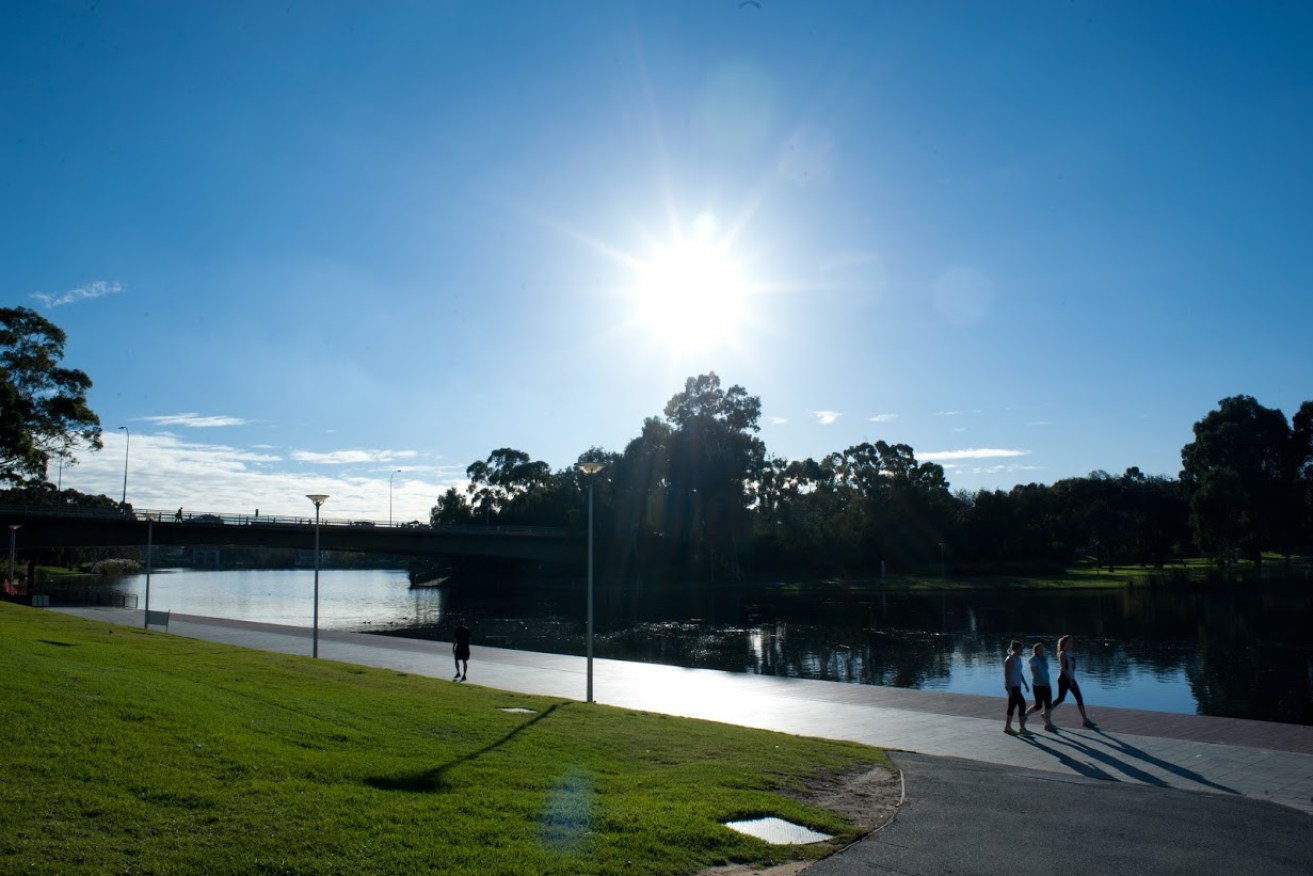City council told to budget for climate change, insurance risks
Property prices in the city could drop and negligence lawsuits could rise as a direct consequence of climate change, the Adelaide City Council has been warned.

Photo: Nat Rogers/InDaily
The council’s audit committee head David Powell told elected members at a meeting on Tuesday night that the council needed to consider the impacts of climate change as an “emerging financial risk” over the coming decade.
His warning follows a Climate Council study early this year that estimated nation-wide residential property value losses of $571 billion by 2030 related to increased extreme weather events, inundation of some low-lying coastal properties and higher insurance premiums.
Financial analysts argue that as buildings become more exposed to extreme weather events and flooding, home insurance premiums are expected to skyrocket, leaving the property market exposed.
Powell said the council needed to factor in an expected property price drop in its long-term financial planning, alongside other initiatives such as increased greening and infrastructure adjustments, to ensure it weathered climate change.
“There is discussion about how climate risk is having a really big impact on properties in Queensland to the point where you can’t even get insurance on those properties, so we’re really quite aware that that’s going to have an impact here too,” he said.
“There will be initiatives, there will be things that we need to budget for in our long-term financial plan on rectification projects…. alternate road surfaces, additional greening, all those kinds of things.
“There’s are also some obligations that are coming… climate-related risks and other emerging risk disclosures that will be required.
“There are companies that have actually been fined for not disclosing this kind of information, so ultimately it will get to that stage when it will become a requirement at a local government level too.”
The number of days reaching over 40 degrees in Adelaide has more than doubled in the past 10 years, with the Bureau of Meteorology forecasting maximum daily temperatures for South Australia will rise by between 1 and 2.1 degrees by 2050.
Sea level rise is also on the radar, with the Environment Protection Authority reporting more than 80 per cent of South Australians live within Greater Adelaide – much of which is a low-lying coastal area.
The council has budgeted $50,000 to investigate the potential risks climate change poses to its financial operations, with a report to come to back to councillors in the coming months.
That report is expected to consider how environmentally sustainable the council’s current assets and buildings are, and what rebates are currently in place to encourage property owners to adapt their homes to make them more energy-efficient.
Minter Ellison special counsel Sarah Barker, who also addressed Tuesday’s meeting, said councillors could not hold off from considering changing weather patterns in the council’s financial planning.
“These are not issues that council can defer until the next electoral cycle, these are issues you must look at now within the short-term,” she said.
“The impacts on the City of Adelaide are going to be unique and you must address them in a unique way.”
Barker said overseas insurance companies had already started “to put their responsibilities at the feet of who controls the infrastructure”.
“We’re seeing negligence claims where a failure to update municipalities’ own infrastructure has impacts on private properties around them,” she said.
“In Illinois, insurers who paid out storm water damage for home owners and businesses then turned around and sued local councils in negligence.
“They said, ‘you caused our loss. It was your failure to update your sewerage and storm water infrastructure to what you knew or should have known were the extreme precipitation patters as a result of climate change’.
“These are all issues that we now need to grapple with to ensure Council in particular is protecting itself against future claims.”
Barker also alluded to increased “social fabric” costs that could fall on the council and other levels of government.
“What will climate change mean for mental health, in terms of family breakdown, in terms of suicide?,” she said.
“When we’re thinking about these financial impacts of climate change and what they mean for council, it’s not just on property – there are far more secondary and tertiary impacts in terms of what it means to communities.”
Powell told InDaily this morning he did not want to be “alarmist” when speaking about financial risk predictions, arguing the impacts of climate change were unlikely to hit the council for the next ten years.
“I don’t think there will be any obvious impacts on Adelaide in terms of property prices or rates in the short-term and definitely not over the next financial year,” he said.
“But, this is an emerging issue and it’s something that we need to be looking at now to be able to plan for the future.”
Want to comment?
Send us an email, making it clear which story you’re commenting on and including your full name (required for publication) and phone number (only for verification purposes). Please put “Reader views” in the subject.
We’ll publish the best comments in a regular “Reader Views” post. Your comments can be brief, or we can accept up to 350 words, or thereabouts.
InDaily has changed the way we receive comments. Go here for an explanation.




